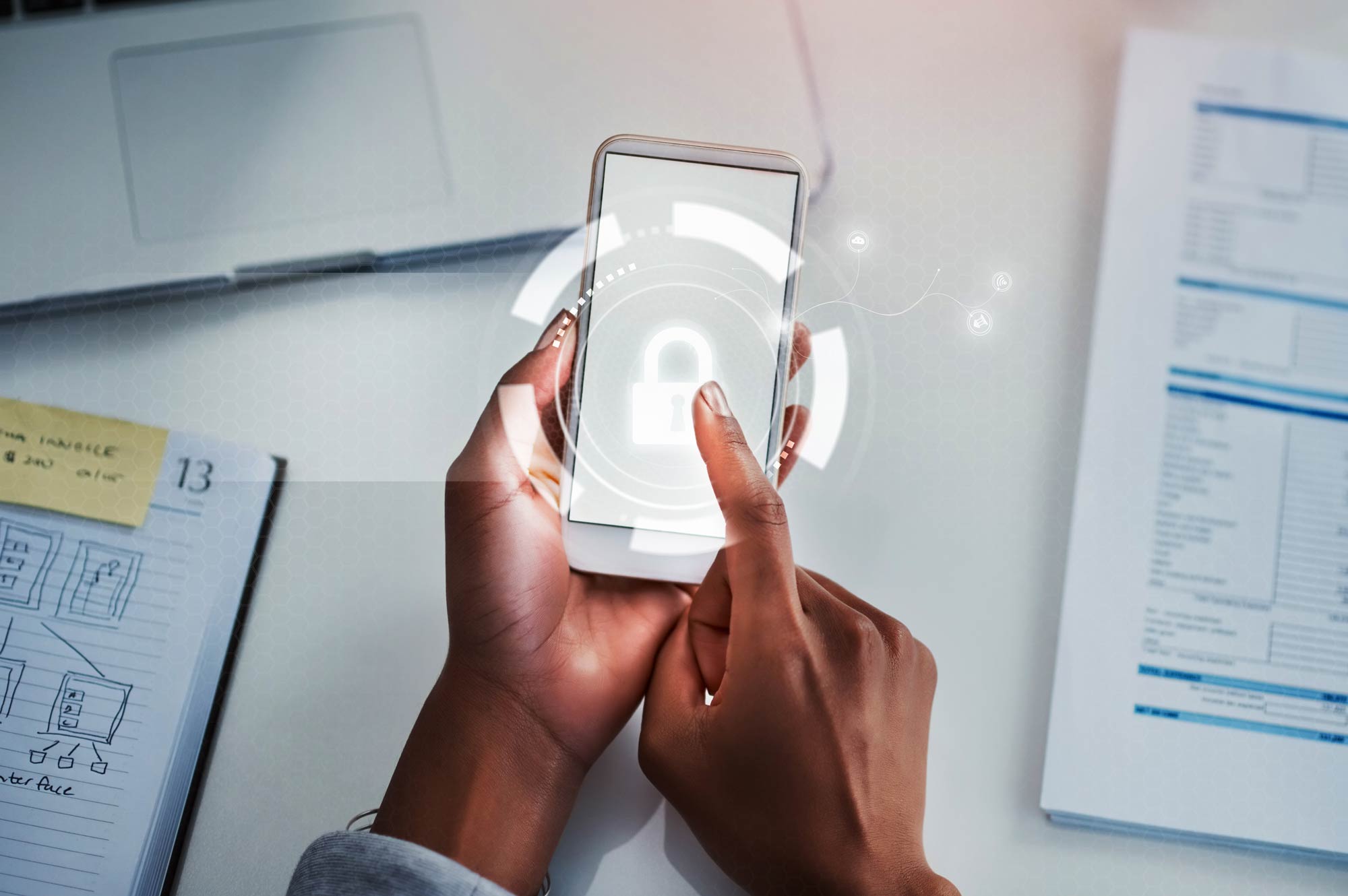Employees can work remotely, communicate efficiently, get to important data and more with their mobile device. However, there’s also significant cybersecurity risks involved, as mobile devices are more easily lost, stolen, hacked, or infected. It’s therefore quite important for businesses to implement proper security measures to make sure mobile devices are protected, as well as the sensitive information they may contain. Below is a guide on keeping these devices secure.
Ensure Strong Passwords and Utilize a Password Manager
Your first line of defense for a mobile device is using a strong password, PIN, or bio-authentication. Features like these prevent unwanted access to mobile devices and their data in the case that it becomes lost or stolen. You should be using different passwords for each app and account you use on your device, as this will limit the damage if one is compromised.
Keep in mind that remembering multiple complicated passwords may become challenging, so you may find a password manager app useful, which can store and autofill your passwords in a secure manner. Apps like these can also help you generate strong and completely random passwords for each account.
Use Two-Factor Authentication
Two-factor authentication, or 2FA, is an additional layer of security, which requires you to verify your identity with something else, such as a code sent to your phone or email. Alternatively, it could require biometric information, like a fingerprint or face scan after entering your password. 2FA makes it harder for hackers to access your accounts even if they have obtained your passwords.
Keep Your Devices Updated
Over time, vulnerabilities will inevitably be exposed in software or operating systems, which can allow hackers to access your data, install malware, or take control of your device. This is prevented by regular security updates, but these only work if you update your devices and apps with discipline. You can check for updates manually or enable automatic updates in your device’s settings.
The age of your device is vital to this, and how dangerous it is to use an older device may vary based on the make and model. For example, Apple’s iPhone line has a specific notification that lets its users know when their device is no longer current enough to receive the latest updates and security patches. If you see such a message on your iPhone, it’s advisable to get a new one before making any business transactions with the device.
For Android users, a message like this may or may not be available to you. Those who use a Google phone, such as the Pixel, are most likely to receive a notification when their device is no longer being serviced. However, Android has a wide variety of vendors, and the many other device types such as Samsung may be less secure, and their apps might not keep up with security standards.
The risk of being compromised increases exponentially with age, and if your device is a decade older or more, engaging in potentially sensitive actions like online banking has a high chance of your valuable data being compromised.
Avoid Unsecured Networks
When you are in the wild, you might be tempted with public Wi-Fi at cafes, hotels, airports, or other places. However, these networks are often unsecure and unencrypted, meaning someone with rudimentary software on the same network can see what you’re doing or intercept data. You should either avoid connecting to these unsecure networks, or use a virtual private network (VPN) that can encrypt your traffic and mask online activity.
Be Cautious with Clicks and Downloads
Another exceedingly common way that hackers infect mobile devices is by tricking users into downloading malicious apps, or clicking on phishing links. These (usually) appear legitimate, but actually contain malware that can harm your device or steal your data. In order to avoid this, you should only download apps from trusted sources such as official app stores and check the reviews and ratings before installing them.
You should always be wary of clicking links or attachments in emails, texts, or social media messages that look suspicious or come from unknown senders. Links or attachments like these have a nasty habit of leading you to fake websites that ask for your personal information or download malware onto your device.
Use Privacy-Focused Apps
Some apps can collect your personal information without your consent. This can, of course, compromise your privacy and expose you to malicious attacks. In order to prevent this, use privacy-focused apps that respect your data. You should be reviewing the privacy policies of the apps you use and adjust them according to your needs.
If you’re still concerned about cybersecurity in any device, mobile or on-premises, feel free to visit the Contact Us page for more specialized help.

